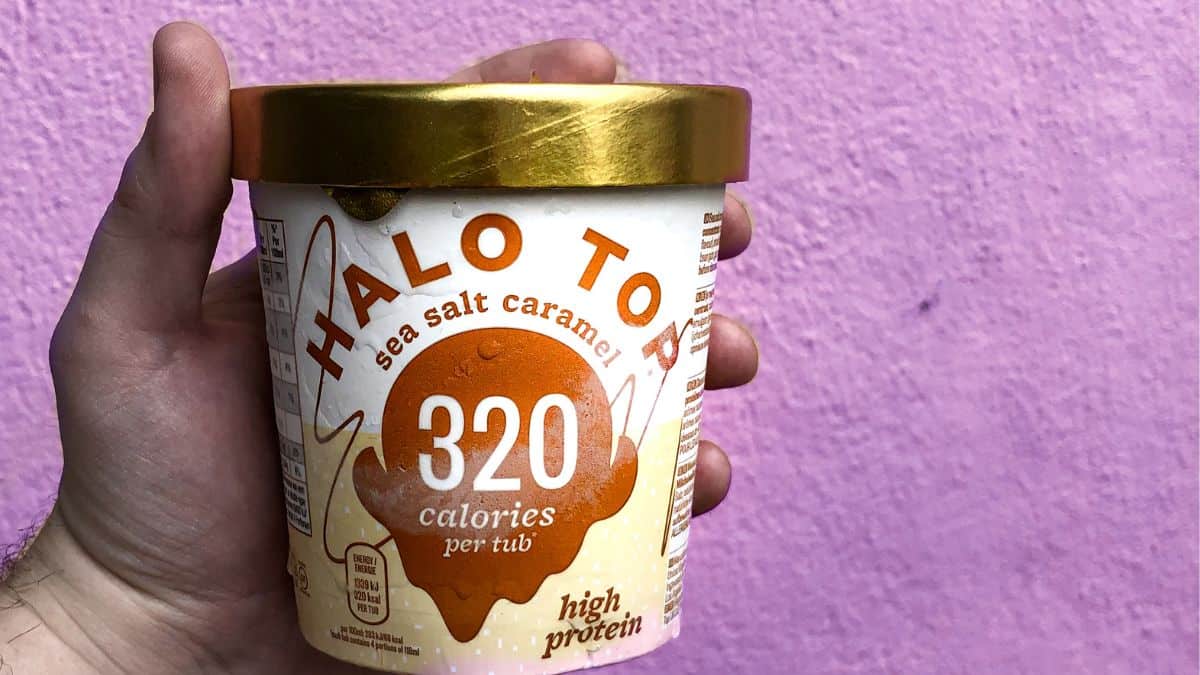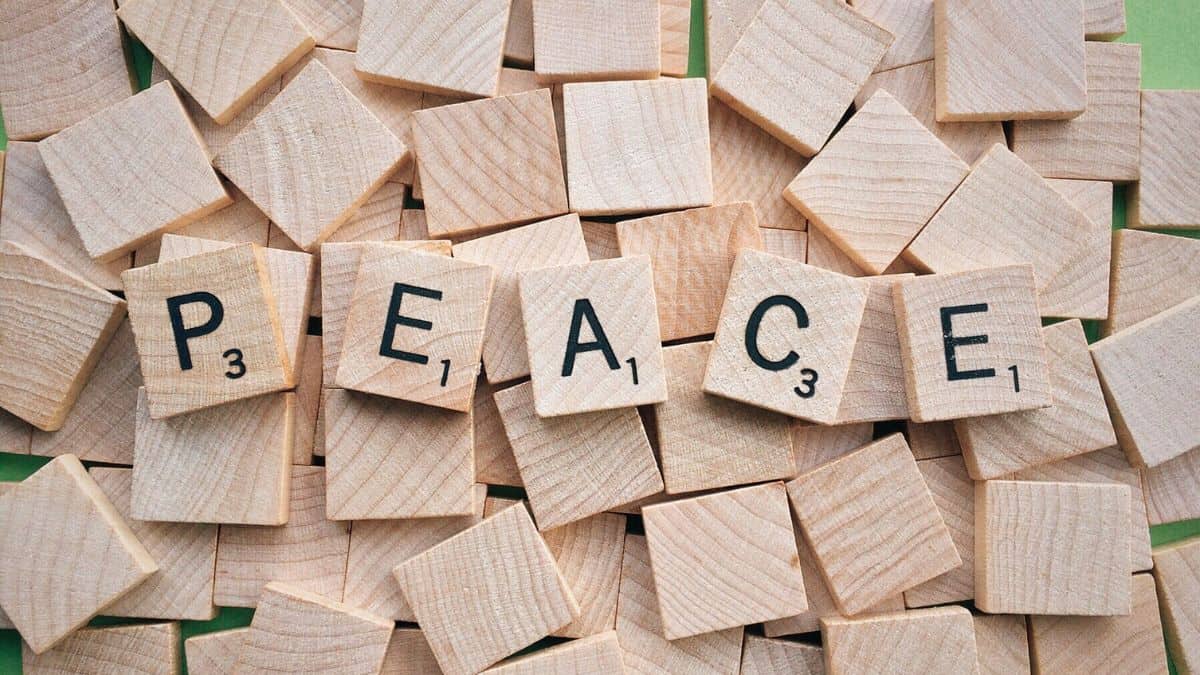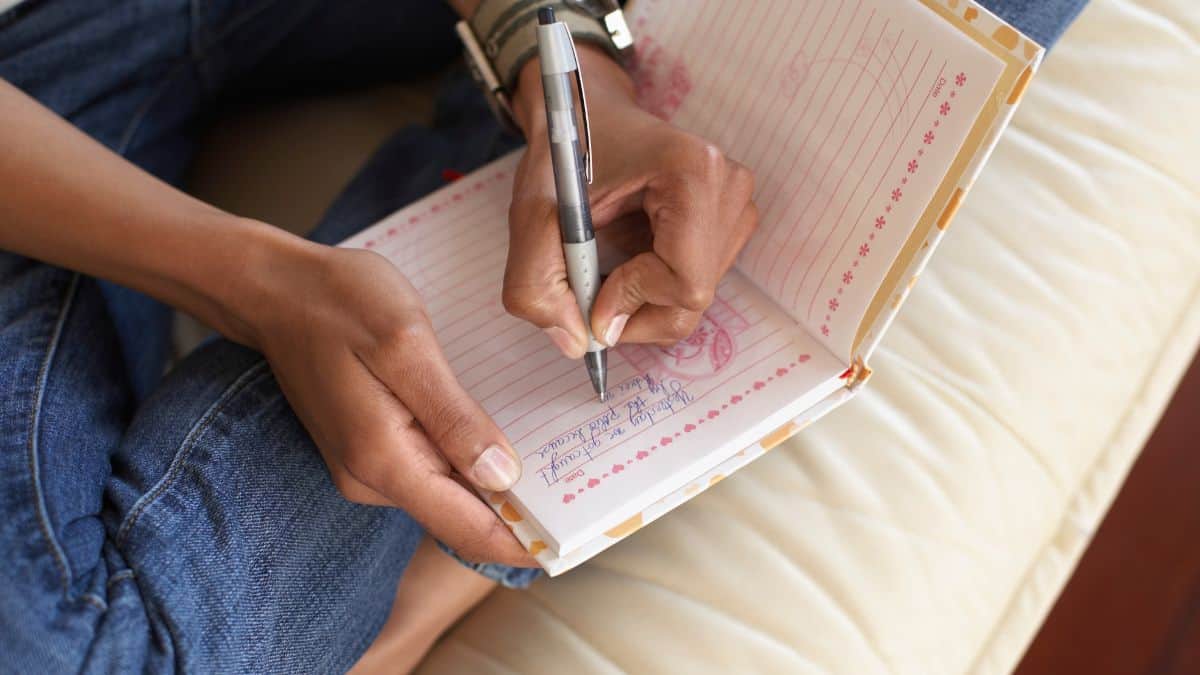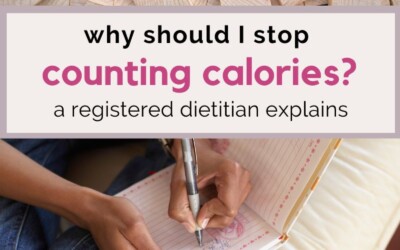Are you ready to ditch the calorie counting and step into newfound freedom with your relationship with food? If so, then you’re in the right place.
Hi there, Gorgeous. I’m Colleen: ex-dieter, registered dietitian and Intuitive Eater.
Intuitive Eating is a powerful way to reconnect with your body’s signals of hunger and fullness, allowing you to enjoy meals while naturally regulating the amount of food you eat along the way (no calorie counting required!)
In this blog post, we will explore practical strategies for making the transition from counting calories to Intuitive Eating so that you can cultivate a balanced relationship with food and gain health benefits without deprivation or restriction.
Ready? Let’s begin!

First up: why is calorie counting harmful?
This can feel tricky when so many diet-culture promises are packed full of lies and BS. Calorie counting is touted for being “healthy” and supporting a “healthy weight”. Ain’t true.
Let’s bust some holes in the myth that calorie counting is healthy…and show how it actually can cause real harm.
- Calorie counting takes away from your body’s natural ability to regulate its energy needs.
- It also causes you to feel all binge-y. Especially if you’re not eating enough calories. But even placing limits within your “calorie goal” creates binge-y ness; the mental restriction of tracking causes harm.
- How? Counting calories increases the stress hormone cortisol (even if you aren’t restricting and are just monitoring!).
- Surprisingly, calorie counting can cause weight gain (which isn’t actually a good thing or a bad thing, but weight loss is often what prompts people to calorie count, to begin with). Spoiler: diets just don’t work.
Basically, calorie counting causes mental & emotional stress.
(BTW, the harm happens no matter what metric you’re counting, be it macros or WW points).
So…where to begin with stopping calorie counting? I recommend aiming small.
It’s totally OK to start small
Learning to NOT calorie count is a new habit that also requires unlearning your habit of counting every calorie that you’ve been practicing a lot. It may be that not counting calories seems even harder than counting calories.
I recommend taking it slow and having gentle expectations for yourself.
What does that look like? You might start by just not tracking one meal or snack a day. Then the next week add another, etc.
If you can/want to go cold turkey and delete your tracking apps: feel free to give it a try. But I’ll share that this is typically too overwhelming for most people.
This podcast episode might be some nice inspo: Breakup with Your Tracking App!
Work on rewiring your brain
There are things in your life that you can do without even thinking about them. Maybe it is how to rollerblade, how you pull your car into your driveway and park in the same precise spot, or the exact ritual of making the perfect morning cup of coffee. So while these things might be second nature to you now, you might be able to remember what it was like to build that muscle, to begin with.
When I work with clients in The SociEATy we talk a lot about the psychology that goes into Intuitive Eating. One helpful concept to understand is neuroplasticity. What’s that, you ask? It’s all about your brain’s ability to be flexible.
Your brain has become wired to automatically count calories. That is your current habit, your current thing that comes without thinking. It took practice to learn and wire that thought process, so, we gotta rewire it! This is done by quite literally creating new neural pathways in your brain. That is neuroplasticity; your brain’s ability to be flexible and build new connections.
The motivation driving your calorie counting is guilt, and guilt comes from any sense of breaking rules. But your brain can change; change your rules and overcome these urges to count calories.
If you’d like to take a deeper dive into exploring food guilt, check out this post: Why do I feel Guilty After Eating (And How To Stop).

Meanwhile, here are the exact steps to rewire your brain and overcome food guilt (P.S. If you’re in The SociEATy we go over this in detail in stage 1 video 3!):
Step 1: Approach this with curiosity, not judgment. You can do this by imagining that these thoughts don’t necessarily come from you, because that’s the truth!
Step 2: Take a moment to observe a thought and ask yourself a few questions:
- Is this true?
- Where did this thought come from?
- Is this thought serving my best, most abundant life?
- What will this thought lead me to?
Step 3: Reframe: challenge the unhelpful thought with what you know to actually be true.
Step 4: And once you’ve done that, reflect on how you feel about the thought and your situation.
Here is an example of what this internal conversation might feel like (and if it is helpful to write this down, feel free to do that instead!).
- Thought: You shouldn’t eat that much food for lunch!
- Question the thought: “This actually isn’t true. I actually need a lot more food than I think (and what diet culture has told me). Food is energy to live and my body has the capability to tell me when, what, and how much it needs.”
- Reframe: No amount of food is “too much”. I get to decide how much feels good to me.
- Reflect: Maybe you realize – wow! Eating to satisfaction felt so good! It’s not as scary as I thought. Maybe in the evening you no longer have a magnetic pull towards the chips in the pantry as a result because you actually got enough food.
Now, we have tons and tons of thoughts and we will not be able to catch ALL the guilty food ones and that’s OK. This is a practice and it takes practice. As we do this hard work, it will get easier and more second nature, just like it did learning to rollerblade or making your perfect morning drink.

Lean on Mantras + Affirmations
When you’re trying to clear out your brain from the noisy urge to calorie count, it can be very helpful to have some positive phrases to fill up the silence.
Here are a few of my favorite Intuitive Eating Affirmations.
These mantras and affirmations can help make brain rewiring easier and encourage you to not track calories. It’s hard to think of things in the moment so do the “leg work” before you dip your toe in the water to begin breaking the calorie-counting habit.
If it’s hard to think of WHAT to think, I feel you. This is where I really recommend leaning on mantras and affirmations to help. It can be REALLY hard to think of something true and not diet-y when you’re having a challenging body image day or when you’re eating a cookie and are swallowed up by a wave of guilt. So, let’s do the leg work beforehand.
Take a moment to think of some phrases, or hop onto Pinterest and create a new board if you need some inspo, and get some phrases ready that you can say when the time comes. It can be helpful to think about the past week and some challenging thoughts you may have had surrounding food and body and how you could respond in a way that can facilitate brain rewiring.
Sometimes it is easier for us to be kinder to others than it is to be kind to ourselves. If it is feeling difficult to come up with mantras and affirmations that feel authentic to you, try pretending that you’re writing mantras for someone you deeply care about. Does that help you to feel a bit more gentle and kind?
Once you find some mantras that you like, I recommend planting these EVERYWHERE! Hop onto Canva, a super easy online design website, and make them the background of your phone.
Jot one on a sticky note and place it on your bathroom mirror, slap another on the fridge, slide copies into your coat pocket, jeans pocket, your purse, and tucked into the books that you’re reading. I want these to feel like sunny reminders that you’re worth being free from restrictive diets.
This saturation of your environment can help the process of brain rewiring to go faster because you get opportunities to practice this new way of thinking again and again.
Beyond reading your mantras and saying them out loud, you can also add writing a mantra to your journaling practice, which I HIGHLY recommend on this journey. There is so much research to back up the act of writing. It’s said that you’re 42% more likely to achieve a goal if you write it down. So if food freedom and a non-diet mentality is your goal? Write down your mantras!
P.S. Journals can be useful for so many things, not just mantras. You can write down things that you’re grateful for, feelings of happiness, and even describe your mood. Getting messy thoughts out on paper can really help your brain to feel less anxious. And, with time, as your thoughts become less diet-y you’ll notice progress in the kinds of things that you’re writing down.

Focus on learning to eat intuitively
Learning to eat Intuitively, as you learn to do in The SociEATy, is about rebuilding the trusting relationship with your body, your eating, and your hunger that you had when you were younger.
Just like you can rewire your brain to release the compulsive thoughts about food guilt and calorie counting, you can rewire your viewpoints about your eating habits.
Again, it takes practice, but I’ll also say that it is far easier and more pleasant with a structured process for success and a community of support (I’ve got you covered with all of that right here).
…but what about my weight?
Not tracking your calories can bring up a LOT of feelings, including fear and anxiety about possible changes in your weight.
What’s gonna happen to YOUR weight?! Great question.
Here’s the thing: everyone’s journey with Intuitive Eating is different. When your body is properly fueled, your weight might change, or it might not. I can’t promise what that will be like for you.
But what I can promise is that being tied to restrictive diets is making your life smaller with less room for joy.
This is SUCH a common question that I made a guide for you explaining everything about the science behind diets and weight gain and what it is like to get rid of your food rules.
That’s a wrap
Ultimately, breaking free from calorie counting can be a difficult process. But, by retraining your brain to respect and accept hunger cues and by listening to your body’s needs, you can develop an intuitive practice that actually works better than mental math and constant worrying. Remember: don’t be afraid of the process – eating can be enjoyable and delicious without having to stress over it!
You don’t have to figure out everything all at once – in fact, it’s best to go slow and steady. Don’t forget that your journey is unique, so there is no ‘right’ way of doing things; give yourself patience and extra TLC throughout the process.
If you’re looking for more guidance along your journey, then download our free intuitive eating and weight guide now: it’s packed with information about the real science of dieting, including weight loss and gain, and answers your most common questions (and even a few you might not have thought of).

Intuitive eating sounds great but…won’t I just gain weight?!
Find out what might happen to your weight when you get rid of your food rules, the research behind Intuitive Eating, and why if your goal is long-term health, breaking up with diets is the way to go.






Tina says
Any advice for those of us (like yourself) who have been counting calories so long that we don’t need the apps to keep track? Even without weighing, counting and measuring, I can get pretty accurate with the count by just eyeballing and adding in my head. I try not to, but it is automatic at this point.
Finally, after almost a year and a half of trying to ditch diets and practice intuitive eating, falling off the wagon, and getting back on again, I’m starting to really find a groove and things are clicking much more than they have in the past. Some revelations happened after I fell off the IE wagon recently and tried Noom, quit after two weeks, and demanded a refund. Back to IE again! Things I’ve noticed that aren’t scale related are that I’ve been sleeping a lot better and my GI upset has been minimal. I’m not as gassy and bloated all the time.
I had a small win today over calorie counting. It was lunch, I was hungry. I hadn’t packed anything to eat, so I walked to the grocery store nearby my work and just picked out some things that looked good and walked back. Of course, calorie counts are on everything, so I can’t help but casually add it up in my head as I go along. But I just picked what sounded good regardless of the calories. I got an asiago cheese bagel with whipped cream cheese, a small bag of white cheddar popcorn, and a box of mini Charleston Chews. (I love carbs) I hadn’t had Charleston Chews in a really long time and they looked so good. After I’d finished my bagel and popcorn I started thinking about all the calories in the candy. I thought I’d just eat a few and then put them away. I ate 4, put away the box, and then thought about it. I still wanted more. I took out 3 or 4 more…then a few more. After I’d eaten about a serving size (13 chews!) I still wanted more, but I didn’t want the calories. I was worried I would keep eating them until they were all gone and then I’d be sad. I told myself I can have what I want and that I probably wanted them so badly because it had been so long since I had them last. I decided to honor my craving, eating one at a time, mindfully. If I mindlessly ate them I knew I would eat them all for sure. I told myself that even if I did eat them all, it would be OK if that’s what my body wanted. I paid attention to each little Chew. After several more I was surprised to find that I was satisfied. I didn’t want any more, and there were still a lot left in the box. I put the box in my desk drawer and am totally content, the craving is gone!
Thanks for all your tips! I encourage anyone else to celebrate every little win on their IE journeys. It’s been a long one, but I think I’m finally seeing the light at the end of the tunnel.
Colleen says
So so happy you’re seeing the light at the end of the tunnel! That’s amazing!